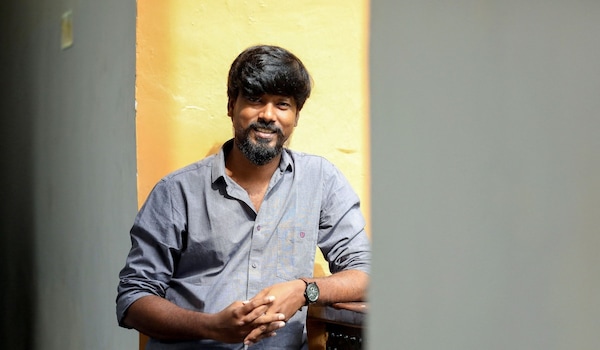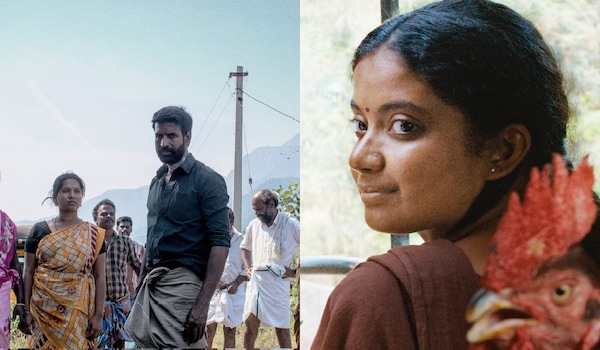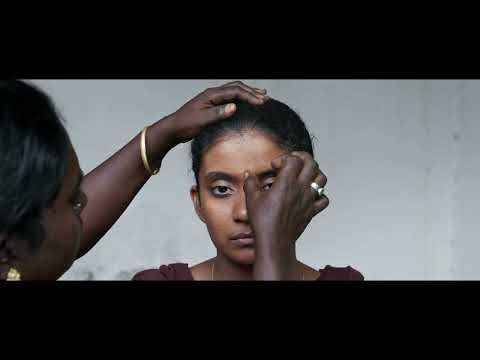Director PS Vinothraj Interview: On Kottukkaali open ending, not wanting to spoon-feed audience, mounting his projects
Kottukkaali director PS Vinothraj Interview: He emphasizes the importance of discussions around his films and the impact of cinema on society. He believes in challenging viewers and not spoon-feeding.

Last Updated: 06.25 PM, Aug 27, 2024
Filmmaker PS Vinothraj’s Kottukkaali is a powerful marriage between patriarchy and superstition. And rightly so, the film’s abrupt and open ending has left the audience divided for many reasons. Following up with his debut film Koozhangal, Vinothraj made Kottukkaali, a film that is locally rooted, yet has made a splash at the international film festivals earlier this year.
The film stars Anna Ben and Soori as Meena and Pandi with the film ending on Pandi’s perspective in the thick of things. Vinothraj says, “Firstly, Kottukkaali coming to theatres by itself is a political statement and it has created a movement. It has stirred a conversation and arguments about the climax, which we had consciously anticipated before. We have released the same cut for both theatrical and festival version, but when it comes to theatres, we cannot avoid the interval block. So, when it comes to films like this, people are unable to accept that the second half ends sooner, and open-ended.” However, Vinothraj looks at the discussions that are stirred post-release of Kottukkaali as healthy means of viewing films, especially his which has opened a pandora box of conversations on patriarchy. On the topic of how there is an involuntary divide between art house and commercial films, Vinothraj says despite it is not his intention, he wishes it changes in the times to come.

PS Vinothraj Interview for Kottukkaali
Interestingly, both Koozhangal and Kottukkaali are road films, which traverse through the journeys of characters from point A to point B. While the former focusses on a father-son duo road journey to bring back their mother from her home, Kottukkaali is about a family who takes their daughter for an exorcism, after realising that the girl has resorted to silence for falling in love out of her caste. “My main reason to make road films is if you take Koozhangal and had the father taken the bus to his journey, his anger would have persisted. But his foot journey gave him time to think and calm down his emotions and understand better. In Kottukkaali, the travel gives the characters a chance to understand which might have been able to if the family members sat at their home and discussed matters. These journeys humanise these characters,” adds the director.
Vinothraj uses landscapes and nature as narratives in his films, which has become evident in the way he uses the arid atmosphere of Madurai in Koozhangal and animals in Kottukkaali. “I chose this land to show the pain inside this grief. There is something about changing a hero into a man. The land is important aspect in which the story is set, followed by the people who live in it.”

Kottukkaali’s one aspect includes Meena having no dialogues throughout the film, barring a crucial moment marked by an act of violence. “Meena’s strength is silence. She has finished explaining her stance and from then on, the words coming out of her should only be words that will cause piercing pain. I found that particular instance as a high point in the film.” Pointing out at the only instance when Meena exhibits her emotion, by smiling at a small boy, Vinothraj says the boy symbolises Pandi. “He is Pandi’s childhood version, who has lost his innocence and gradually became what he has become. The little boy’s world is very different from others. His world gets meddled with confusion, and that’s when Meena smiles back to say everything is alright and restores his childishness.”
On making Kottukkaali
Vinothraj speaks about writing the last shot of Kottukkaali, which not only makes the film immersive and interactive, but also morally responsible for the viewer to take a stand. “The debate which is happening, when people say they will not do it, the person becomes a human from being a Pandi. The audience is getting shocked by the ending, and the only way they can be pacified is when they can process on their own.”
With both his films coming from the place of pure cinema devoid of commercial factors that often make films thrive in today’s times, Vinorthraj says it is indeed difficult. “After Sivakarthikeyan watched Koozhangal and liked it, he was able to see my talent and backed me with Kottukkaali. It was indeed hard to mount this project, right from casting to putting the team together. But I would love to contribute especially now that the film is in the digital era. I know I am not making a wrong film, and my efforts to make such projects will only contribute.”
Vinothraj belongs to the school of thought that believes cinema has a huge role in society. “I cannot see cinema as just cinema. For the most, films have impact on people in one form or the other. People get influenced. Let there be entertainment, but we need to see also films that make us think,” he adds.
So, what would be his next project? Vinothraj laughs, as he says, “Kottukkaali has created a huge discussion, which I am very happy about. People have come to me and asked why I cannot make films in a simple and understandable manner. But all I have to say is that, I regard my audience not as fools. They are smart enough to understand, which is why I don’t want to spoon-feed them.”
Subscribe to our newsletter for top content, delivered fast.
